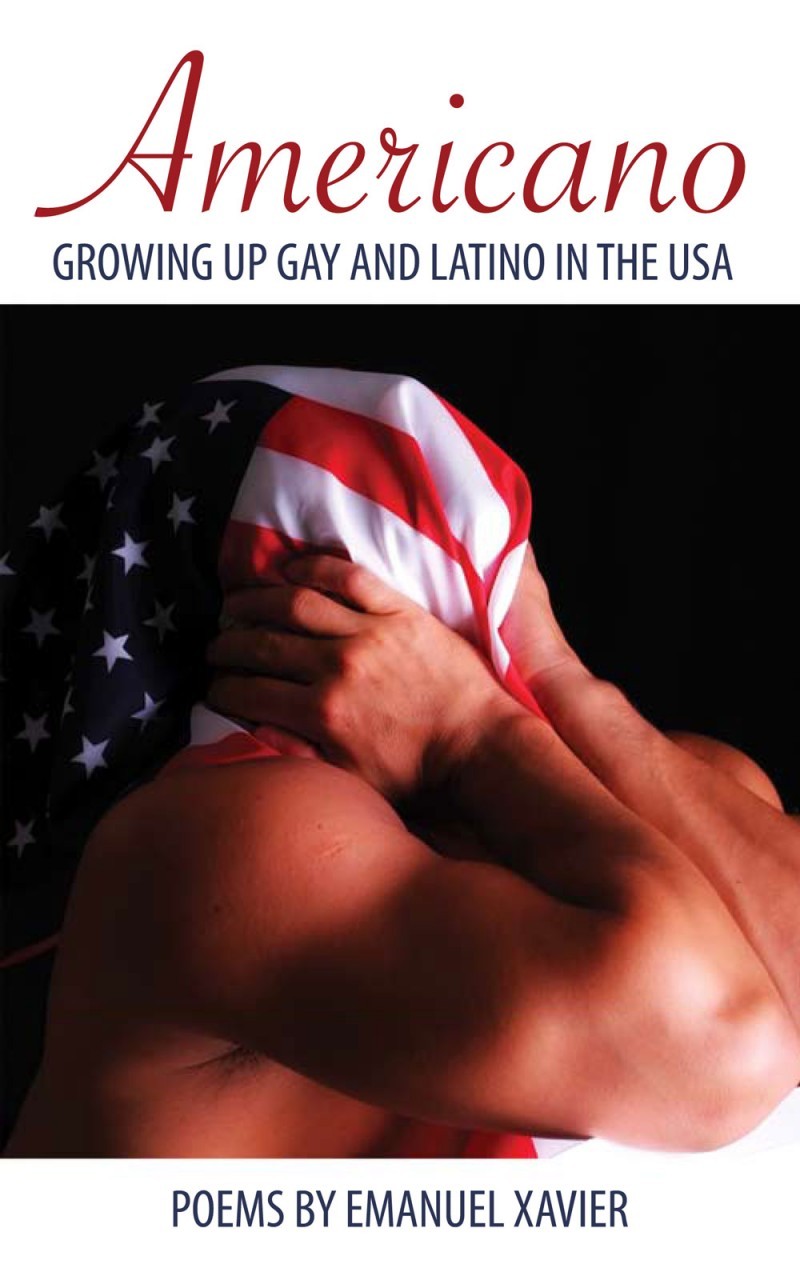A majority of Latinos in the U.S., according to a few surveys we were able to find, support gay marriage nowadays. And although we’ve come a long way in this basic civil rights battle, it’s easy to forget that things weren’t always so sunny for those who found themselves at the crossroads of the gay and Latino intersection. Many continue to suffer horribly and inherit these wounds. But pain can also drive one to create, express, from a unique point-of-view.
Emanuel Xavier's latest poetry collection reissue features new pieces not included in the original texts first published in 2002. Snubbing the mainstream, this phase of Xavier’s work mirrors the chaotic shift from the 1980s into the 1990s, but also his jettisoning out of the Manhattan nightclub and pier culture underworld, when landing himself in the slam and spoken word scene, where he would voice these oftentimes grueling confessions.
Memories are reported from a (banished) distance—echoes of abandonment. The horrors of HIV/AIDS and drug abuse; sex versus love; the sting of infatuation and the strictures of religion; the poet’s struggle and transformation via literature; the hustler’s instincts and the complexity of street life; nightclub dramas and politics; the mysteries of santería and soulless corporate life—it’s all in here in the form of urban New York City realism.
“Teresa” takes a look at race and gender in popular culture
I buy my boyfriend’s niece Ashley
a Teresa doll for her birthday
Barbie’s token Latina friend
a darker skinned replica
which would hopefully teach her multiculturalism
or at least bridge the differences
between her white skinhead-looking uncle and myself
The enduring themes of love and culture (and love of culture) also surface frequently, as in “Café con leche,” a love poem written in Spanish, and in “Je t’aime,” an ode to a New Orleans crush, as well as a poetic kiss to the legendary city itself. “It Rained the Day They Buried Tito Puente” looks at generation gaps and the fading of traditions and ritual sound in our oversaturated contemporary popular culture landscape, as well as the tragedy of assimilation (How could Puerto Rican kids NOT know who Tito Puente was?)
Tito’s rambunctious and unruly rhythms
never touched them
never inspired them to rise above the ghetto
and, like La Bruja said, “Ghet Over It!"
When art arouses uncomfortable emotions, it’s making an impact and not just entertaining. In our anesthetic age of mindless pop culture and not-so-masked corporate censorship it is the underground artist’s job—and in Xavier’s case, joy—to continue opening people’s eyes to unnecessary injustices and their devastating long-term effects, but also to address our right as human beings to admire and love what it is we find beautiful without fearing what others will think of us for it.
To purchase Americano, visit here.




I hadn’t caught on to the #LatinoLit hashtag yet, but it would be nice to see it grow. Promoting literature would be a nice area for the Rebels to beef up on. I am sure the authors will appreciate it and us readers don’t mind be directed to things from time to time either
I really liked your article , your article is very petrified me in the learning process and provide additional knowledge to me , maybe I can learn more from you , I will wait for your next article article , thanks
http://yakuza4d.com/peraturan
http://yakuza4d.com
http://yakuza4d.com/home
http://yakuza4d.com/daftar
http://yakuza4d.com/cara_main
http://yakuza4d.com/hasil
http://yakuza4d.com/buku_mimpi
http://beritamedannews.blogspot.com
http://www.cintaberita.com
http://yakuza4d2.com
http://yakuza4d2.com/promo
http://yakuza4d2.com/daftar
http://yakuza4d2.com/cara_main
http://yakuza4d2.com/hasil
http://yakuza4d2.com/buku_mimpi